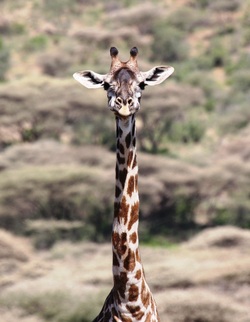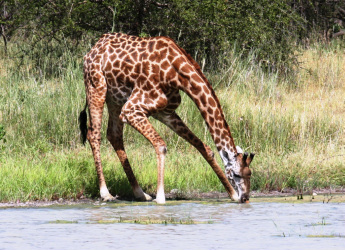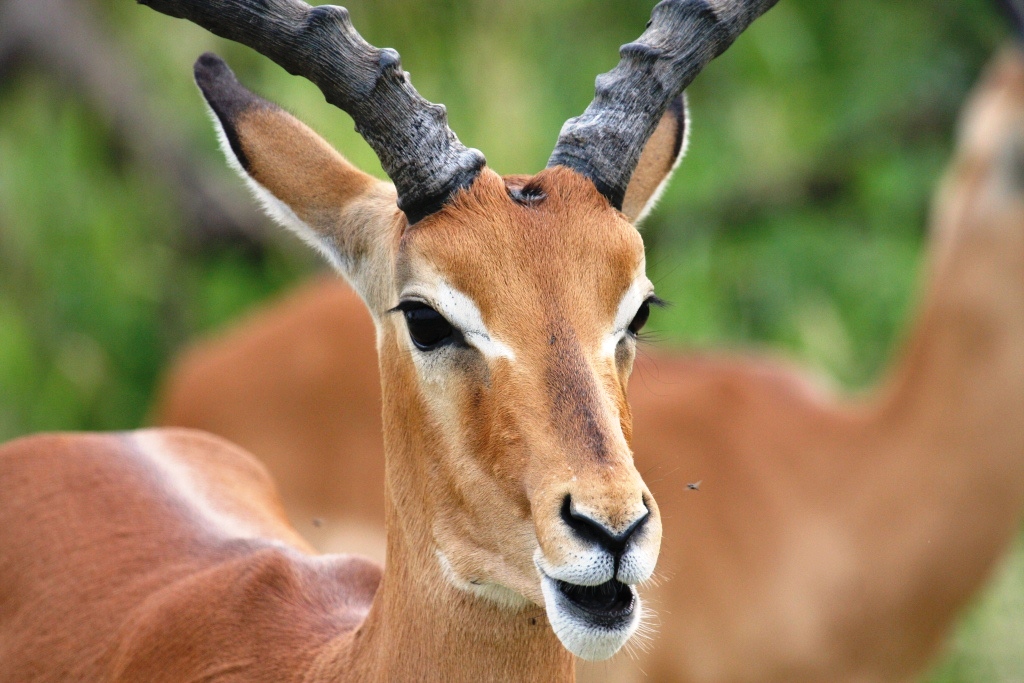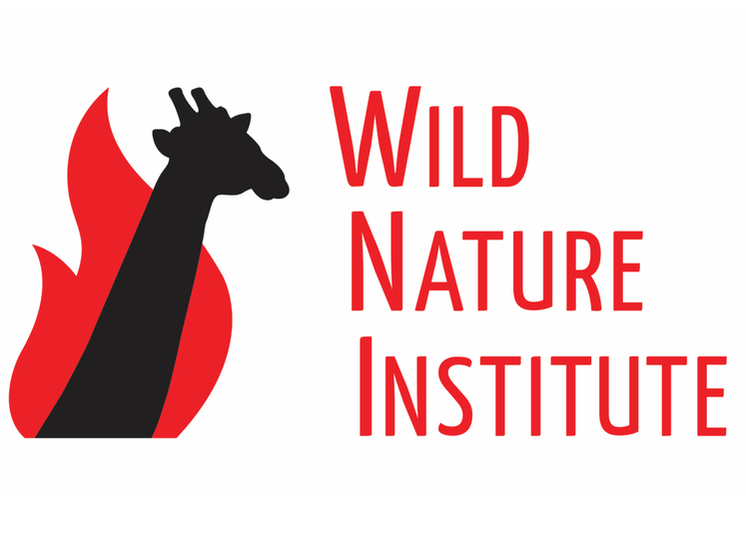 _The gentle, curious demeanor and graceful movements of giraffes rarely fail to capture the hearts of travelers on African safaris as well as zoo-visitors throughout the world. It is a great complement to a Tanzanian woman to be compared to a giraffe (“twiga” in Kiswahili). The giraffe’s great height (>5-meters) allows it to forage in the tree canopy and so avoid food competition with other browsers such as kudus and impalas. As the world’s tallest animals, giraffe are exquisitely evolved to deal with the physical difficulties of having a more than 1 meter long neck – think of the pumping force needed to push the blood up so high to keep the brain nourished! Their blood pressure is almost twice that of an average cow. Giraffes do still need to drink water, however, which can be rather awkward. They must do so very carefully because they are most vulnerable to predation when they are drinking. When a giraffe lowers its head to drink, blood could be expected to rush down the long neck and burst into the brain, causing it to explode – but an intricate system of narrow vessels regulates the pressure. Furthermore the splay-legged, knees-bent posture of drinking giraffes brings the chest lower to the ground and reduces the height difference between the heart and brain. Giraffes also have highly specialized respiratory, thermoregulatory, nervous, and skeletal systems to deal with their extraordinary size and shape.
Thousands of years ago, giraffe once lived in Europe and Asia as well as the African subcontinent – including northern Africa – but they are now confined to just a few populations in sub-Saharan Africa. Sadly, their numbers are declining precipitously due to rapidly growing human populations. The Acacia woodlands upon which giraffe depend are being converted to agriculture and settlements, and individuals are often illegally poached and sold for bush meat. The Wild Nature Institute’s scientists are figuring out which areas within the Masai Steppe ecosystem are the most important for giraffe survival and reproduction, and we will work to ensure these areas are adequately protected.
0 Comments
We are 1 week into our surveys and have found many giraffes in Tarangire national park. We are also documenting the other ungulates we encounter, and the most common ungulate we find at this time of year is Impala. These are beautiful animals that usually occur in harems of females attended by an alpha male and a group of subordinate satellite males.
We spent last week doing a quick trip to the study area to visit the wardens and ecologists at Tarangire and Lake Manyara National Parks where we work, as well as see the managers at Manyara Ranch Conservancy, and the folks at the Tarangire Lion Project. Some roads were a bit wet, but it has been dry for the last week, so hopefully next week's giraffe surveys won't be too bogged down with getting stuck in the mud. We saw a lot of ungulates during our trip, and will be sure to see a ton more during the upcoming giraffe surveys. Wish us luck!
|
Science News and Updates From the Field from Wild Nature Institute.
All Photos on This Blog are Available as Frame-worthy Prints to Thank Our Generous Donors.
Email Us for Details of this Offer. Archives
July 2024
|
|
Mailing Address:
Wild Nature Institute PO Box 44 Weaverville, NC 28787 Phone: +1 415 763 0348 Email: [email protected] |
|



 RSS Feed
RSS Feed
